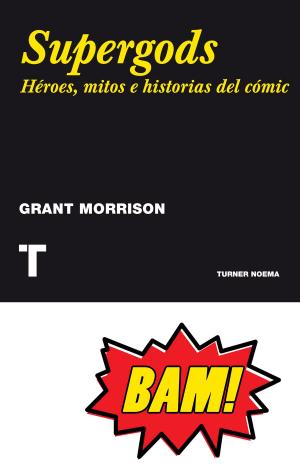| Author: | Michelle Richmond | ISBN: | 9781945753046 |
| Publisher: | Fiction Attic Press | Publication: | November 12, 2016 |
| Imprint: | Fiction Attic Press | Language: | English |
| Author: | Michelle Richmond |
| ISBN: | 9781945753046 |
| Publisher: | Fiction Attic Press |
| Publication: | November 12, 2016 |
| Imprint: | Fiction Attic Press |
| Language: | English |
Four sisters, many lovers, and a series of settings both familiar and exotic delineate the nineteen linked stories in this award-winning debut collection. Whether leaving, returning, or staying put, the women who narrate these stories are bound to Alabama by history and habit, their voices informed by the landscape and lore of the New South.
Michelle Richmond introduces us to a memorable extended family, in which lies come more easily than forgiveness, and parents and siblings conceal the truth as often as they reveal it. In many cases, the women are forced to choose -- between family and lovers, safety and self-sufficiency, the religion they grew up with and the reality of the world they have found for themselves.
In "Down the Shore Everything's All Right," twenty-eight-year-old Grace abandons wide Southern beaches for New York sidewalks, only to discover that the Gulf Coast still has a hold on her. In "Intermittent Waves of Unusual Size and Force," a wayward father is called home from California by a massive hurricane that threatens the lives of his family. In "The World's Greatest Pants," three younger sisters watch in awe as Darlene, the eldest and bravest, defies her parents and heads for Texas in a battered El Camino.
An undercurrent of eroticism runs through the collection. "Propaganda" finds the youngest sister alone in an old house in Knoxville, where she forms a symbiotic relationship with a mysterious upstairs neighbor during her husband's lengthy absence. In "Fifth Grade: A Criminal History," adolescence and sexuality merge with explosive consequences. A woman dancing naked on a bridge in San Francisco is the central figure of the title story.
The divine and the absurd are uneasy but frequent bedfellows in this volume. "O-lama-lama" portrays the scene of a religious free-for-all at a beachside church in Fairhope, Alabama, while "Slacabamorinico" celebrates the holy commotion of Mardi Gras at a Mobile cemetery. In "The Last Bad Thing," a love-struck young woman in the Bible Belt is haunted by visions of Ramadan.
Four sisters, many lovers, and a series of settings both familiar and exotic delineate the nineteen linked stories in this award-winning debut collection. Whether leaving, returning, or staying put, the women who narrate these stories are bound to Alabama by history and habit, their voices informed by the landscape and lore of the New South.
Michelle Richmond introduces us to a memorable extended family, in which lies come more easily than forgiveness, and parents and siblings conceal the truth as often as they reveal it. In many cases, the women are forced to choose -- between family and lovers, safety and self-sufficiency, the religion they grew up with and the reality of the world they have found for themselves.
In "Down the Shore Everything's All Right," twenty-eight-year-old Grace abandons wide Southern beaches for New York sidewalks, only to discover that the Gulf Coast still has a hold on her. In "Intermittent Waves of Unusual Size and Force," a wayward father is called home from California by a massive hurricane that threatens the lives of his family. In "The World's Greatest Pants," three younger sisters watch in awe as Darlene, the eldest and bravest, defies her parents and heads for Texas in a battered El Camino.
An undercurrent of eroticism runs through the collection. "Propaganda" finds the youngest sister alone in an old house in Knoxville, where she forms a symbiotic relationship with a mysterious upstairs neighbor during her husband's lengthy absence. In "Fifth Grade: A Criminal History," adolescence and sexuality merge with explosive consequences. A woman dancing naked on a bridge in San Francisco is the central figure of the title story.
The divine and the absurd are uneasy but frequent bedfellows in this volume. "O-lama-lama" portrays the scene of a religious free-for-all at a beachside church in Fairhope, Alabama, while "Slacabamorinico" celebrates the holy commotion of Mardi Gras at a Mobile cemetery. In "The Last Bad Thing," a love-struck young woman in the Bible Belt is haunted by visions of Ramadan.















